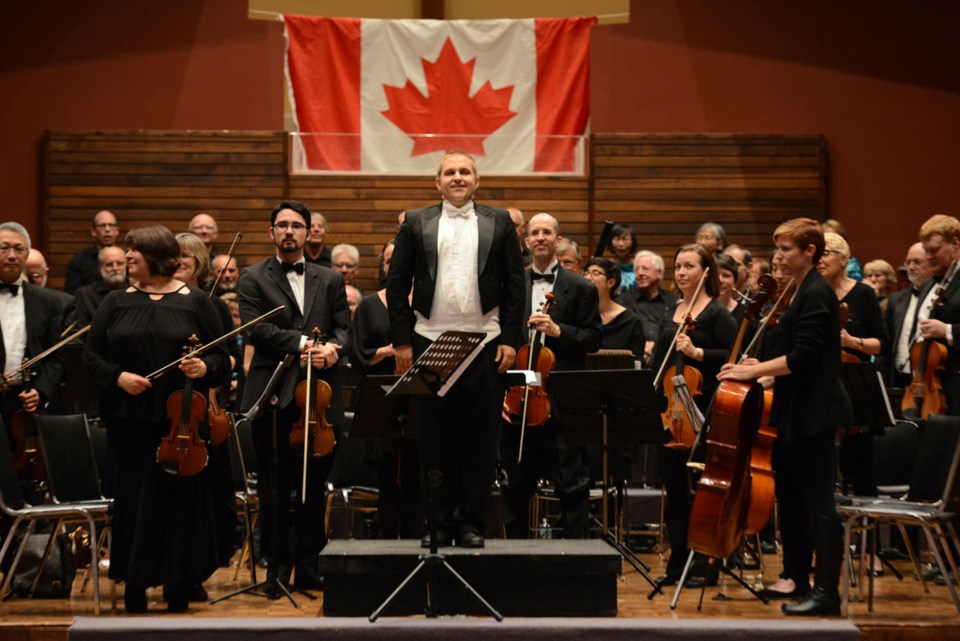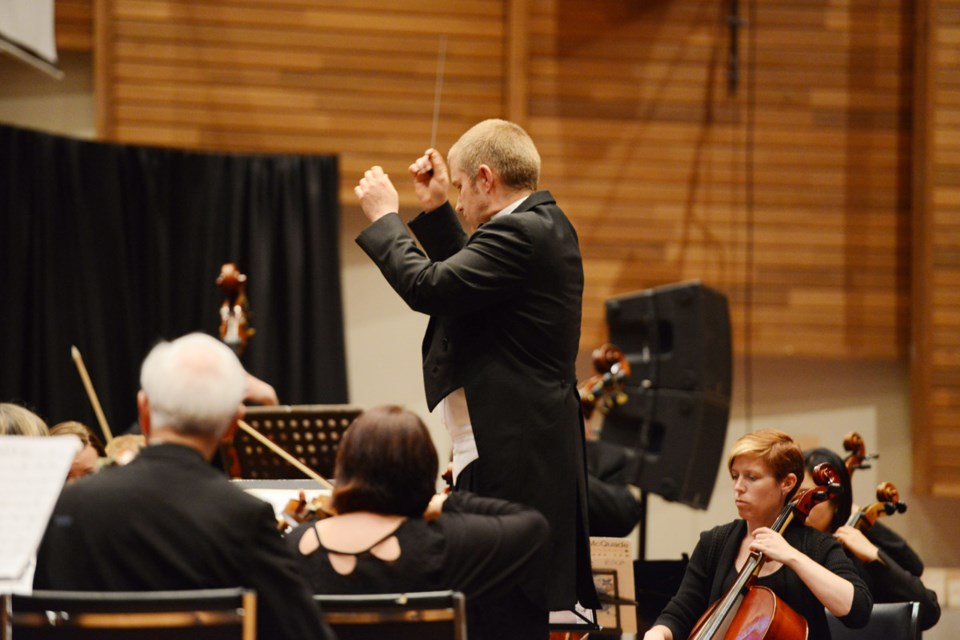I'm dreaming of a white Christmas
With every Christmas card I write
May your days be merry and bright
And may all your Christmases be white...
Love it or hate it, it's the time of the year when Christmas songs fill shops and cafes across Richmond and beyond.
Although many people complain about being over-exposed to endless loops of Jingle Bells during the holiday season, James Malmberg, conductor of the Richmond Orchestra & Chorus Association, believes an authentic Christmas concert is important for the sake of tradition and to bring joy to the community.
“Christmas and music; they go together,” said Malmberg.
“When we think about Christmas, music is one of the first things that comes to mind. This is music you can’t hear at any other time of the year.”
The association will host its live Christmas concert, The Spirit of Christmas, Tuesday night at South Arm United Church, which will feature a mix of classic Christmas music, such as the Nutcracker Selections and the Skater’s Waltz, and modern favourites including Let it Snow and White Christmas.
“Christmas is that time of the year when we like the same familiar traditions — whether it’s music, certain food, decorating the house or whatever.
“These are unique things that we only do at Christmas time. It’s very happy and faithful music, and it puts a smile on everybody’s face.”
Well, not everyone’s face.
In fact, some feel like shooting the speaker system when they hear yet another ditty about Santa Claus coming to town.
A U.S. psychologist recently released a study showing that Christmas music can create joy as well as mental health problems.
“Many of us associate this music with childhood and a happy time of presents and traditions and all the specialness that happens around that time of year,” said Rhonda Freeman during an interview with NBC last month.
“When the brain makes these associations with something very positive and pleasurable, the rewards system is being activated [which triggers] a number of chemicals.

However, not everyone had happy childhoods. Some experienced loss or tragedy.
But for others, it’s not so much about hating Christmas music, as just having too much of it piped into their heads.
The key is control, said Freeman.
It’s important the listener be able to decide how and when they hear Christmas music, she added.
Freeman is particularly concerned about people working in retail who have to listen to the repetitive tunes for hours on end as store owners try to put consumers in a mood to buy more.
“If you don’t want to hear a song, or are hearing it on repeat for three hours, your prefrontal cortex is working hard to filter it out so you can focus… that’s stressful, because your brain has to work harder to focus,” said Freeman.
But while the incessant playing of Christmas music is a decidedly modern phenomenon, music has been an essential part of Christmas for centuries, with its history dating back to the fourth century in Rome, where Latin hymns were sung.
The first Christmas carols in English are believed to have appeared in 1426, when a chaplain listed 25 “carols of Christmas.”
A surge of Christmas carols was seen in the 1800s. From the 20th century, a stream of Christmas songs, many from the U.S., were created, when the songs were more focused on traditional Western themes and customs.
“There’s a lot of music that was composed for films in the 1940s and 1950s,” said Malmberg.
“That has become traditional Christmas music, as well. Anybody who remembers those older films will remember all this great Christmas music.”
But regardless of the era, for many, Christmas isn’t Christmas without the magical Silent Night.



